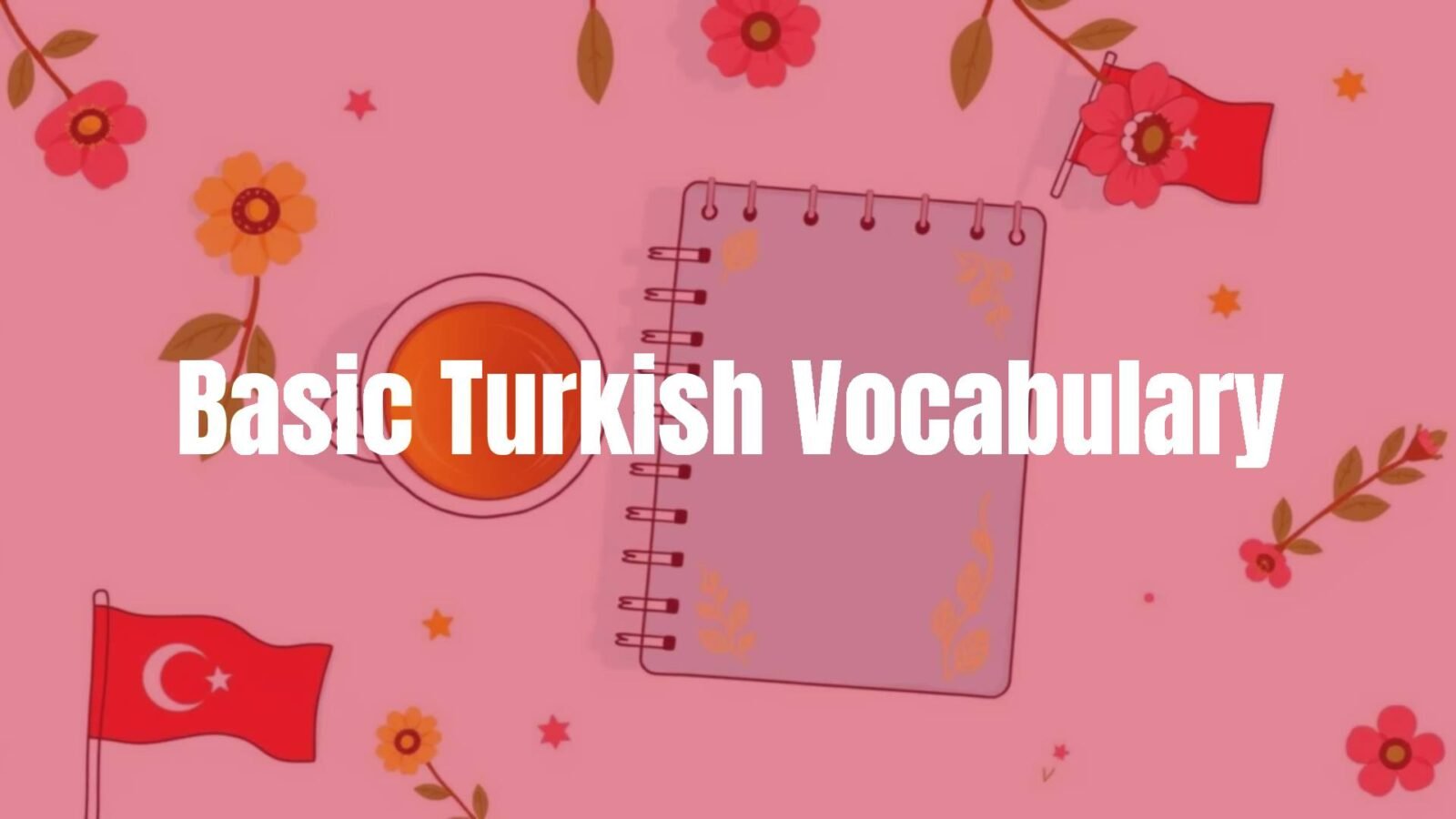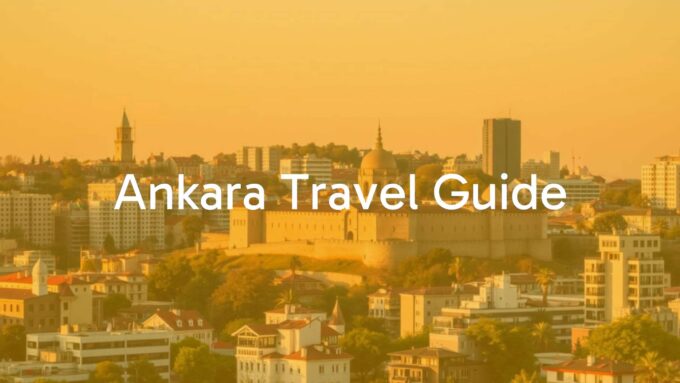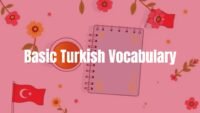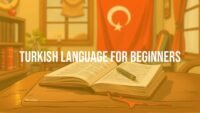What is basic Turkish vocabulary?
Starting to learn Turkish might seem overwhelming at first. Instead of memorizing the thousands of words that make up the whole language (there are over 100,000 words in Turkish!), it makes sense to begin with the most common words and phrases. These are the words you’ll use every day and hear the most, like greetings, common verbs, and simple questions. Learning these basics helps you speak and understand Turkish in practical situations, like saying hello or asking for help.
You don’t need to know every Turkish word to have simple conversations. Research shows that understanding just the top 100 words lets you recognize about half of all words in everyday written Turkish. By focusing on these first steps-basic vocabulary-you can introduce yourself, ask basic questions, find places, and take part in simple talks right away.

Why learn basic Turkish vocabulary first?
Makes daily communication easier
If you travel to Turkey or meet Turkish speakers, knowing a few basic words and phrases lets you greet people, shop, and get directions. For example, knowing “Merhaba” (Hello) or “Teşekkürler” (Thank you) helps break the ice and shows respect to locals. These small words go a long way in making real connections and having better experiences, even if your Turkish is just starting out.
Basic words also let you ask simple things like “Tuvalet nerede?” (Where is the bathroom?) or “Ne kadar?” (How much?). Using these words gives you small wins and keeps you motivated to keep learning, turning what may seem like a hard task into an easier and more fun experience.
Helps you learn the language faster
Focusing on the most-used words is the best way to start with any language. These words come up all the time, so you keep reviewing them naturally. This makes it easier to remember them and to begin forming your own sentences quickly. If you start with the basics, you can understand general ideas in conversations sooner, even if you don’t catch every word.
Getting a fast start also helps your confidence. When you notice you’re able to speak and understand more, you’re more likely to keep learning. Many common words also act as the base for new ones, so once you master them, it’s easier to add more detail and complexity as you go along.
Useful for travel, work, and making friends
Learning basic Turkish words and phrases makes traveling much smoother. Outside of tourist areas, knowing local words can help you get around, order food, or ask for help. Turkish people usually appreciate any attempt to speak their language, and it’s a good way to find new friends or learn more about local culture.

In business, being able to speak Turkish can help you stand out. Turkey has millions of speakers and many business opportunities. Even knowing the basics can show respect, build better connections, and help during everyday tasks at work. For all social situations, knowing how to introduce yourself or ask a polite question can help you feel more comfortable and make real relationships.
How is Turkish vocabulary organized?
Borrowed words and original Turkish
Turkish vocabulary is a mix of words that come from its own history and words borrowed from other languages. Words from Arabic and Persian are common, especially for topics like religion or literature, while more recent words from English and French show up in technology and modern life.
Turkish is “agglutinative,” which means it adds endings to words for things like tense, possession, or questions, instead of using extra words. At first, these long words may seem tricky, but once you learn the patterns, Turkish sentences become clear and logical. Often, one Turkish word can carry the meaning of a full sentence in English, thanks to these endings.
How Turkish words are pronounced and written
Turkish is much easier to pronounce than English because words sound like they are spelled. The alphabet is based on Latin letters. It has 29 letters-no Q, W, or X-and includes a few new letters with special sounds.
- ‘ç’ – sounds like ‘ch’ in ‘chair’
- ‘ş’ – like ‘sh’ in ‘shoe’
- ‘ğ’ – usually lengthens the vowel before it, not pronounced alone
- ‘ı’ – a no-dot i, kind of like the ‘u’ in ‘supply’
- ‘ö’ – like ‘u’ in ‘burn’ (with lips rounded)
- ‘ü’ – like ‘u’ in ‘cute’

Learning these sounds helps you say words clearly and understand others more quickly.
Main groups of basic Turkish words
Greetings and polite words
Politeness is important in Turkish culture. Here are some easy words and phrases to start with:
- Merhaba – Hello
- Günaydın – Good morning
- İyi günler – Good day
- İyi akşamlar – Good evening
- İyi geceler – Good night
- Hoş geldiniz – Welcome
- Hoş bulduk – Response to “Welcome”
- Lütfen – Please
- Teşekkür ederim/Teşekkürler – Thank you/Thanks
- Rica ederim/Bir şey değil – You’re welcome/It’s nothing
- Affedersiniz – Excuse me
- Özür dilerim – I’m sorry
Basic questions, answers, and connectors
To hold an easy conversation, it helps to know:
- Evet – Yes
- Hayır – No
- Tamam – Okay
- Ne? – What?
- Nerede? – Where?
- Ne kadar? – How much?
- Nasıl? – How?
- Kim? – Who?
- Anlamıyorum – I don’t understand
- Bilmiyorum – I don’t know
- ve – and
- ama – but
- çünkü – because
- veya/ya da – or
Numbers
| Number | Turkish |
|---|---|
| 1 | Bir |
| 2 | İki |
| 3 | Üç |
| 4 | Dört |
| 5 | Beş |
| 6 | Altı |
| 7 | Yedi |
| 8 | Sekiz |
| 9 | Dokuz |
| 10 | On |
Some tens: Yirmi (20), Otuz (30), Kırk (40), Elli (50), Altmış (60), Yetmiş (70), Seksen (80), Doksan (90), Yüz (100), Bin (1,000).
Days, months, times
- Bugün – Today
- Dün – Yesterday
- Yarın – Tomorrow
- Saat – Hour
- Dakika – Minute
- Saniye – Second
- Pazartesi – Monday
- Salı – Tuesday
- Çarşamba – Wednesday
- Perşembe – Thursday
- Cuma – Friday
- Cumartesi – Saturday
- Pazar – Sunday
- Ocak – January
- Şubat – February
- Mart – March
- Nisan – April
- Mayıs – May
- Haziran – June
- Temmuz – July
- Ağustos – August
- Eylül – September
- Ekim – October
- Kasım – November
- Aralık – December
- Hafta – Week
- Hafta sonu – Weekend
Words for family and people
- Anne – Mother
- Baba – Father
- Kız çocuk – Girl/Daughter
- Erkek çocuk – Boy/Son
- Kadın – Woman
- Erkek – Man
- Kardeş – Sibling (can be “kız kardeş” sister or “erkek kardeş” brother)
- Abla – Older sister
- Abi – Older brother
- Arkadaş – Friend
- Hanım – Ms./Mrs. (after woman’s name)
- Bey – Mr. (after man’s name)
Places and giving/asking directions
- Sokak – Street
- Cami – Mosque
- Müze – Museum
- Havaalanı – Airport
- Alışveriş Merkezi – Shopping mall
- Fırın – Bakery
- Ev – Home
- Şehir – City
- Sağ – Right
- Sol – Left
- Burada – Here
- Orada – There
- Tren garı – Train station
- Otobüs durağı – Bus stop
Transportation words
- Otobüs – Bus
- Taksi – Taxi
- Bilet – Ticket
- Tren – Train
- Havaalanı – Airport
- Binmek – To get on/ride
- İnmek – To get off
- Tren istasyonu – Train station
Food and drink
- Su – Water
- Çay – Tea
- Kahve – Coffee
- Süt – Milk
- Ekmek – Bread
- Tavuk – Chicken
- Balık – Fish
- Kuzu – Lamb
- Köfte – Meatballs
- Pide – Turkish pizza
- Meze – Appetizers
- Şeker – Sugar
- Tuz – Salt
- Hesap lütfen – The bill, please
- Dondurma – Ice cream
- Baklava – A Turkish dessert

Describing words (adjectives/adverbs)
- İyi – Good
- Kötü – Bad
- Büyük – Big
- Küçük – Small
- Sıcak – Hot
- Soğuk – Cold
- Kolay – Easy
- Zor – Hard
- Çok – Very/many
- Hızlı – Fast
- Yavaş – Slow
- Erken – Early
- Geç – Late
Adding descriptive words helps you talk about your likes, dislikes, experiences, and daily life in more detail.
Sample basic Turkish vocabulary list
| English | Turkish |
|---|---|
| Hello | Merhaba |
| Good morning | Günaydın |
| Good evening | İyi akşamlar |
| Yes | Evet |
| No | Hayır |
| Please | Lütfen |
| Thank you | Teşekkür ederim |
| Excuse me/Sorry | Affedersiniz/Özür dilerim |
| Good | İyi |
| Bad | Kötü |
| Woman | Kadın |
| Man | Erkek |
| Mother | Anne |
| Father | Baba |
| Friend | Arkadaş |
| Water | Su |
| Bread | Ekmek |
Common mistakes when learning basic Turkish
Mispronouncing letters and sounds
Even though Turkish is written phonetically, some sounds don’t exist in English, like the ‘ı’ (dotless i) and the difference between ‘c’ (like ‘j’ in “jam”) and ‘ç’ (like ‘ch’ in “cheese”). Mixing these up can cause confusion (“sıcak” for “hot” is often misread by new learners). Pay close attention and listen to native speakers to learn the right sounds.
Direct translation from English
Many people try to translate directly from English to Turkish, which leads to mistakes. Turkish sentences usually end with the verb, and possession uses suffixes (for example, “evim” means “my house” rather than “benim ev” as you might expect by copying English). Turkish also doesn’t use the verb “to be” in the present tense. Learn Turkish sentence patterns instead of just translating word for word.
Similar words and “false friends”
Some Turkish words look like English words but mean something different (“bir” is “one”, not “beer”). Others are easy to confuse because they sound similar. Practice listening and using words in context to help you remember the right meanings.
Tips for learning more Turkish words
Speak with native speakers
Talking with people who speak Turkish will help you learn quickly. You get immediate help with pronunciation and can use words in real conversations. Try to find a language partner, tutor, or friendly native speaker, even online, to practice with as much as you can.
Use flashcards and learning apps
Flashcards, either on paper or through apps, can help you remember new words. Many language apps also use spaced repetition-which means you review words just before you’re likely to forget them. Apps like Mondly make learning fun with games and can be used any time you have a few minutes free.
Practice talking every day
Try to use Turkish every day, even just for 5-10 minutes. Talk to yourself, describe what you see, or message a friend. The more you use new words, the more natural and automatic they become.

FAQ about basic Turkish vocabulary
Which Turkish words should I learn first?
Start with greetings, polite words, common questions, and everyday verbs. For example: “Merhaba” (Hello), “Lütfen” (Please), “Teşekkür ederim” (Thank you), “Evet” (Yes), “Hayır” (No), and essential verbs like “yemek” (to eat) and “gitmek” (to go).
How do I say hello and thank you in Turkish?
The main word for “hello” is Merhaba. For “thank you,” say Teşekkür ederim for formal situations or Teşekkürler when speaking casually.
How do I keep improving my Turkish vocabulary?
Build on your basic words with new vocabulary that matches your interests or daily life. If you’re a student, learn school-related words. If you love Turkish food, learn the names of dishes. Listen to Turkish music, watch videos or films with subtitles, and try reading easy Turkish news or stories. Practice with native speakers whenever you can, and try to use new words in sentences. Over time, your vocabulary will naturally grow.
















Leave a comment